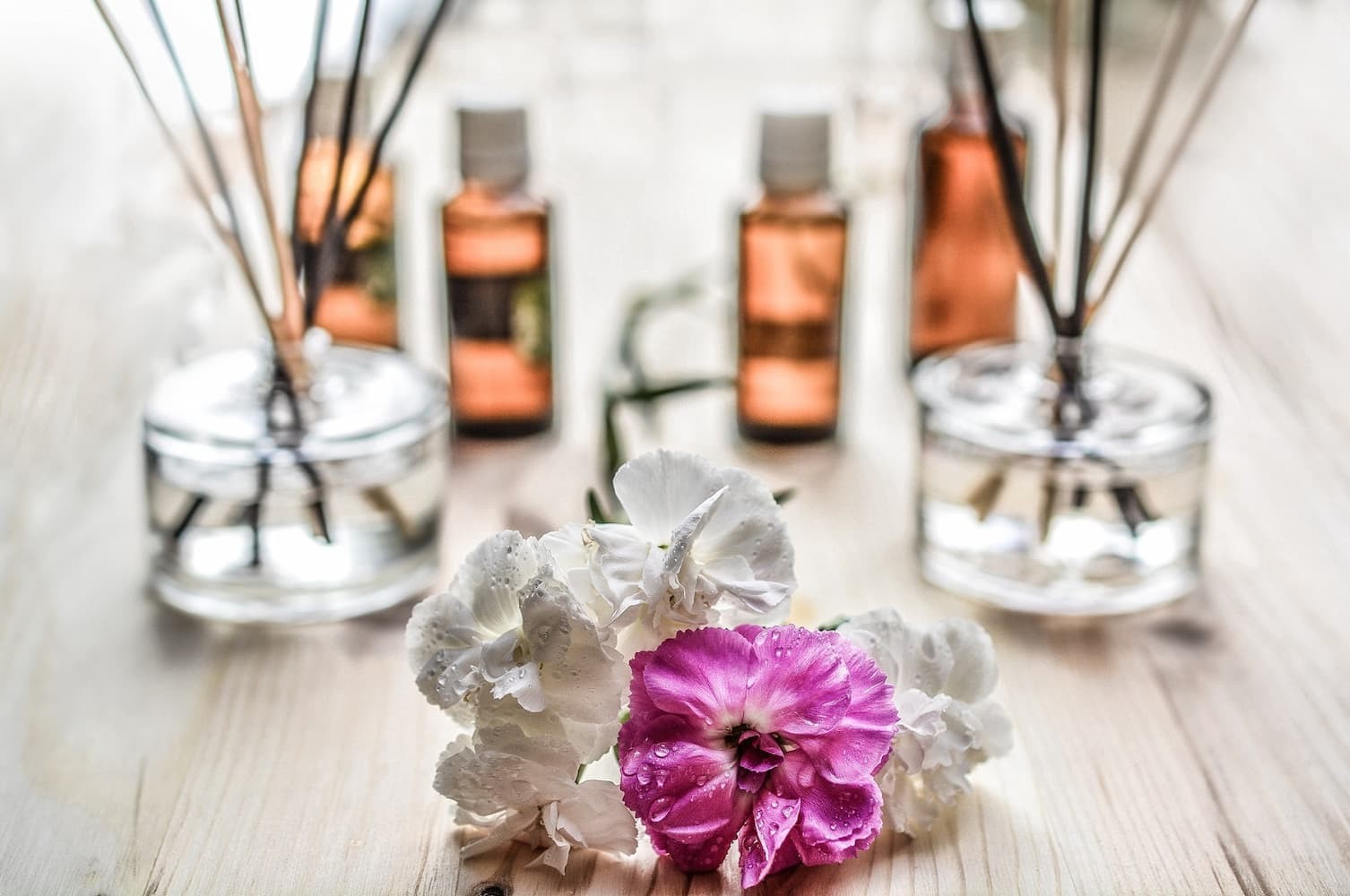Definition of aromatherapy
: inhalation or bodily application (as by massage) of fragrant essential oils from plants (as from flowers and fruits) for therapeutic purposes
broadly: the use of aroma to enhance a feeling of well-being
The way to use the benefits and healing properties of essential oils.
Aroma – therapy has been used for centuries to assist the body to heal, to keep germs and viruses at bay.
In the past, physicians (Doctor De Lorme) would put herbs and essences in their mask to be in-haled, because they believed herbs/essences would help purify the air they breathed in.
Today everyone has the opportunity to utilise the amazing benefits of beautiful aromatherapy oils. It is important to remember the words AROMA – THERAPY.
Aroma - means the quality that makes a thing perceptible to the olfactory sense.
How Aromatherapy Can Improve the Quality of Life
Essential oils are intended for external use. To be breathed in through the olfactory bulb in our nasal cavity. They can be applied in numerous different ways for the individual to gain the benefits.
- Inhalation – in an atomiser, in oil burners, on a handkerchief, on a tissue, on our clothes. In a bowl of hot water, on an aroma stick, these are some ways they can be used for inhalation.
- Trans dermally – through the skin. Some essential oils can be used directly on the skin and are used as a perfume; these are limited to which ones can be used as a neat essential oil since most, such as tea tree oil, lavender essential oil, ylang ylang and lemon essential oil, need to be diluted in a base oil. When diluted in a base oil they can be applied all over the body, but be careful of genital areas. As body oils, they can be applied to the soles of the feet for great absorption, as well as along the spine. Combining your essential oils with your favourite cream makes for a wonderful essential oil therapy. Be aware of the concentration of the oils, 1%-3% dilutions is okay. When essential oils are applied trans dermally they enter the body via the integumentary system (skin), when into the venous and lymphatic systems, then they are dispersed around the body. This is how applying the blend onto the skin is how they enter the muscular system of your body.
- Lotions – sometimes if you may need to make a rub up using an alcohol application, the essential oils are added to alcohol/apple cider vinegar and, using an emulsifier which disperses the essential oils evenly throughout the lotion, they can be used in massage therapy to treat muscular pain.
- Gargles/mouthwash – essential oils can be added to a solution which can be used for gargling or rinsing the mouth, depending on why you need to be doing this. Sufficient uptake happens in the mouth or throat when this method is used and the medium should not be swallowed. It must be spat out.
Essential oils are OILS which means that they are absorbed into oils/fatty tissue. Like all oils, they float on water and are not absorbed.
When taken internally they are NOT easily or readily absorbed by the body, so they can possibly cause problems and damage to the gastrointestinal tract. When ingested on a regular basis they have been shown to cause cirrhosis of the liver and permanent damage.
Signs to look for if you are reaching a toxic level:
- Headaches
- Nausea and vomiting
If you find that you are having either of these when around essential oils, reduce the usage because it is likely you have reached a toxic level. It does not mean you have to stop using the oils altogether; it just means take a break from the usage. Air your home, reduce the usage of your aromatherapy product for a week or so, then you can start using them again.
I love my essential oils. I have been using them for 32 years and I wouldn't be without them. Like everything, quality essential oils are fantastic when used in moderation and correctly, but they can be dangerous when overused and used incorrectly.
I personally treat them like a medicine, with respect.
I never take them internally. There are so many better ways to utilise the amazing qualities of the oils, remember it is AROMA -therapy. I do not use them in my cooking or in my daily drinks.
Stay well and healthy and enjoy using these beautiful gifts from nature appropriately.
Author and Trusted NTP practitioner |
||
|---|---|---|
 |
Christene LowethHouse of Oils |
Christene has been practising as a massage therapist since 1996 and a LIFE COACH since 2010. |










